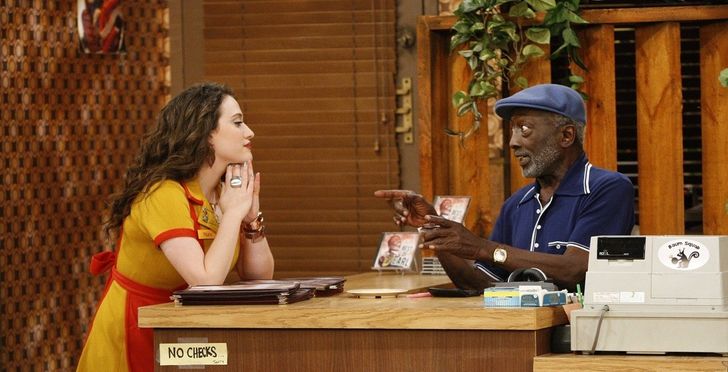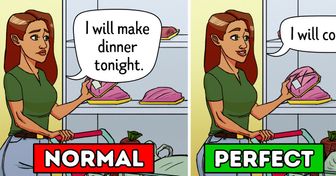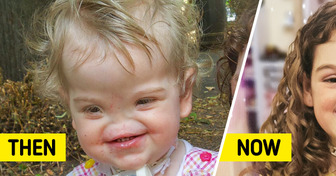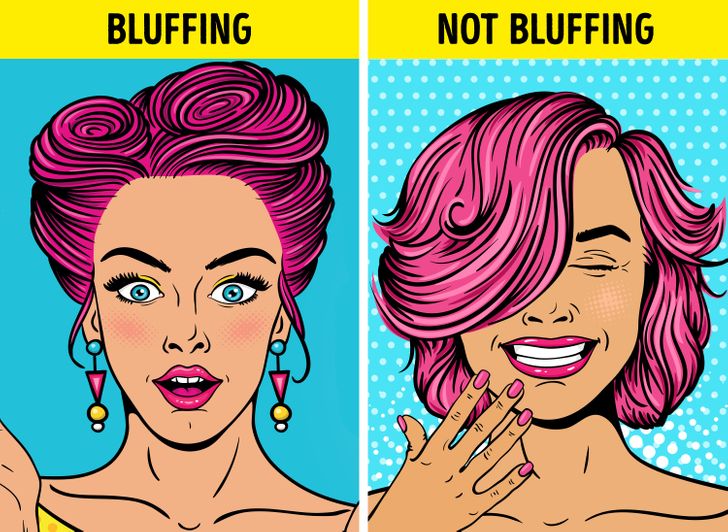That's very interesting, got many useful tips :)
When I want a person to like me I look in their eyes while talking to them. It creates the atmosphere of trust and they are more likely to open to me. "Tested" it on many people, it works!
Internet Users Share 25 Psychological Tricks They Successfully Use Every Day
Little tricks can make anything less complicated: from cooking to flying to space. The same goes for people’s relationships. You want to teach your child how to talk to others? Or get a quiet person to talk? You’re not the only one. Reddit users reveal some small tricks that help them every day.
We at Bright Side really try to make the lives of our readers better and hope these tips will help you a lot.

-
I prefer asking, “What questions do you have?” instead of “Do you have any questions?” It’s just that the former results in questions, and the latter results in silence.
-
Be kind, even to unpleasant people. There is something charming about the transition of someone who’s angry to someone who’s in a better mood.
-
In order to avoid problems in the workplace and improve your relationship with your colleagues, say good things about them when talking to other people.
-
I work in an office. When people stop by my desk and are not going to leave, I take a bottle of water and go to fill it while the conversation is going on. But after that, I don’t go back to my desk, I go to the desk of the person that’s talking to me. It makes them sit in their place automatically. Then, I finish the conversation and go back to work.
-
If you use headphones, but don’t turn the music on, it will be easier for people to say interesting things when you’re next to them.
-
I am a professional poker player. During games, I try to make my opponents laugh while I think about my next move. Laughter makes them less likely to bluff.
-
Do you want people to like you? Then, ask them for a very small favor like “Can you hold my pen for a second?” This will trick their brain into thinking that it likes you, because why would they help you otherwise?
-
First, ask for something you will definitely not get and then for something that you actually want. It’s called the “Door-in-the-face technique.”
-
Don’t apologize, but thank people instead. So, say “Thank you for your patience!” instead of “Sorry for being late.” This way, you will draw attention away from your faults and highlight the good qualities of the people you’re interacting with.
-
If you need to criticize someone, first say something positive, then lay out your criticism, and finally finish with something positive again. This will make it easier for them to take your criticism in a more positive way.
-
I usually get more information if I listen to someone silently. Just let a person speak. If they interrupt you, just wait. They will feel the need to make a sound, so they will continue to talk.
-
I used to work in advertising and my boss taught me to make a small, but noticeable mistake in the first draft before approval. Clients will notice the mistake, ask you to fix it, and feel great. Now I work freelance and when I have difficult clients, I make a couple of mistakes on purpose. It works every time.
-
In an argument, first find something that both sides agree on and then get to the main subject.
-
If someone you are talking to is trying to justify their actions, the best way to react is by just staying silent, turning their speech into a monologue. Without any reply, the person will lose confidence in their words. I learned this technique from my boss, who controlled every meeting and was always the quietest person in the room.
-
When I’m doing backcountry hiking patrol in a wilderness area, I’m supposed to keep an eye out for people with dogs (which are not allowed). The ranger taught me to ask any dog walkers, “Are you looking for somewhere to walk your dog?” This gives them the chance to pretend they didn’t know about the rule (even though signs are posted everywhere, of course) so they don’t lose face. Then I give them a brochure with dog-friendly trails.
-
I recently read that saying, “You’re right!” instead of, “I know.” makes you look less like an arrogant person and doesn’t diminish something someone else may have just found out.
-
I picked this one up from a friend of mine. He used it whenever he was trying to figure out where to go to dinner with his girlfriend: rather than ask, “What do you want?” and getting the typical, “I don’t know, anything...” answer and then having suggestions shot down, start with, “What do you NOT want?” I’ve used it a few times in some of my relationships and it’s the godsend question.
-
Be direct and ask specific people when you need something. Instead of asking, “Does anyone have a pen?” ask “Who has a pen?”. And in order to ask someone to call 911, say “Okay, you wearing the blue jacket, what’s your name? Okay, Tom, call an ambulance.”
-
I currently manage around 240 people between 6 restaurants. It is often hard to get them to do what’s needed, but I’ve found that saying, “I need your help” is sufficient to get them on board. People want to feel needed and like they are making a difference. Expressing this to them makes all the difference in the world.
-
If you need to remember something, think about it while doing something noticeably unusual. This will pair the memory with the “something,” so that when it is noticed later on, it will trigger that particular memory. For example, say to yourself, “I need to take out the garbage before going to bed” and then put your pillow at the foot of your bed.
-
If someone is upset or angry, just say, “That’s completely understandable.” It gives them a victory and shifts their emotions away from being directed at you because you understand and might be on their side.
-
My youngest (4) got into the “why” phase a little while back. I read an article that said the best way to get them to stop is to ask them, “I’m not sure, what do you think?” It is a godsend. They answer their own question, you provide some feedback, like, “Sounds good to me” and they immediately move on. It’s awesome.
-
I also taught my daughter that you don’t just say sorry and it’s over. First, you say you’re sorry. Then, you ask “How can I help you feel better?” It helps the child take responsibility for making someone else feel bad, and acknowledges that just saying sorry often doesn’t fix the problem they caused. Your reply, “Thank you for saying sorry,” goes really well with, “It would make me feel better if you gave me my toy back.”
-
When I had something important to say to my kids, I would say it very quietly so that they would listen. They were immune to my yelling, but whispering got their attention.
-
I’ve started making my 4-year-old ask the whole question, so now he has to ask “Why is the sky blue?” rather than just “Why?”. It makes him pause and think, engages him in the conversation more, and breaks us out of that constant why-why-why-why... loop.
Which of these tricks seems the most helpful to you and why?
Comments
"If you use headphones, but don’t turn the music on, it will be easier for people to say interesting things when you’re next to them."
How? I can't get it
Probably they meant, when people see you use headphones, they might think you listen to music or so, and they want to be heard and be more interesting than your music. As a result, they open more and tell more interesting things.
At least, that's what I think
The trick about “What do you NOT want?” is actually really useful. I will use it from now on too.
To say "That’s completely understandable" is actually genius. Saved it.
Related Reads
A Divorce Lawyer Shares 10 Ways to Not Become Their Client

“Screams Desperation,” Nicole Kidman, 56, Stuns in a Risqué Dress, But People Say It’s Not Age-Appropriate

Zac Efron’s Appearance a Few Days Ago Leaves Fans Shocked and Worried

A Woman Used Botox Because She Wanted to Look Like Her Younger Self, and According to People Online She Succeeded

Model Lost Entire Lips in Pitbull Attack, And She Reflects on Her Recovering Journey

Miley Cyrus Causes a Stir by “Leaving Nothing to the Imagination” as She Wears an Extremely Revealing Dress

15+ Moms Who Didn’t Want Pets in the House but Now Love Them to Death

Jennifer Lopez Faces Backlash as Users Notice Something Unusual in Her Bikini Pics

A Detail Spotted on Salma Hayek’s Breasts Sparks Big Controversy, as She Celebrates 57th Birthday

Jennifer Lopez Sparks Controversy After Posting Candid Photos of Ben Affleck

Tom Cruise Deemed Unrecognizable in New Pics With Prince William, as Some Say He Had “Too Much Surgery”

A Girl Born Without Nose, Who Was Called “Voldemort”, Proved Everyone Is Beautiful in Their Own Way




